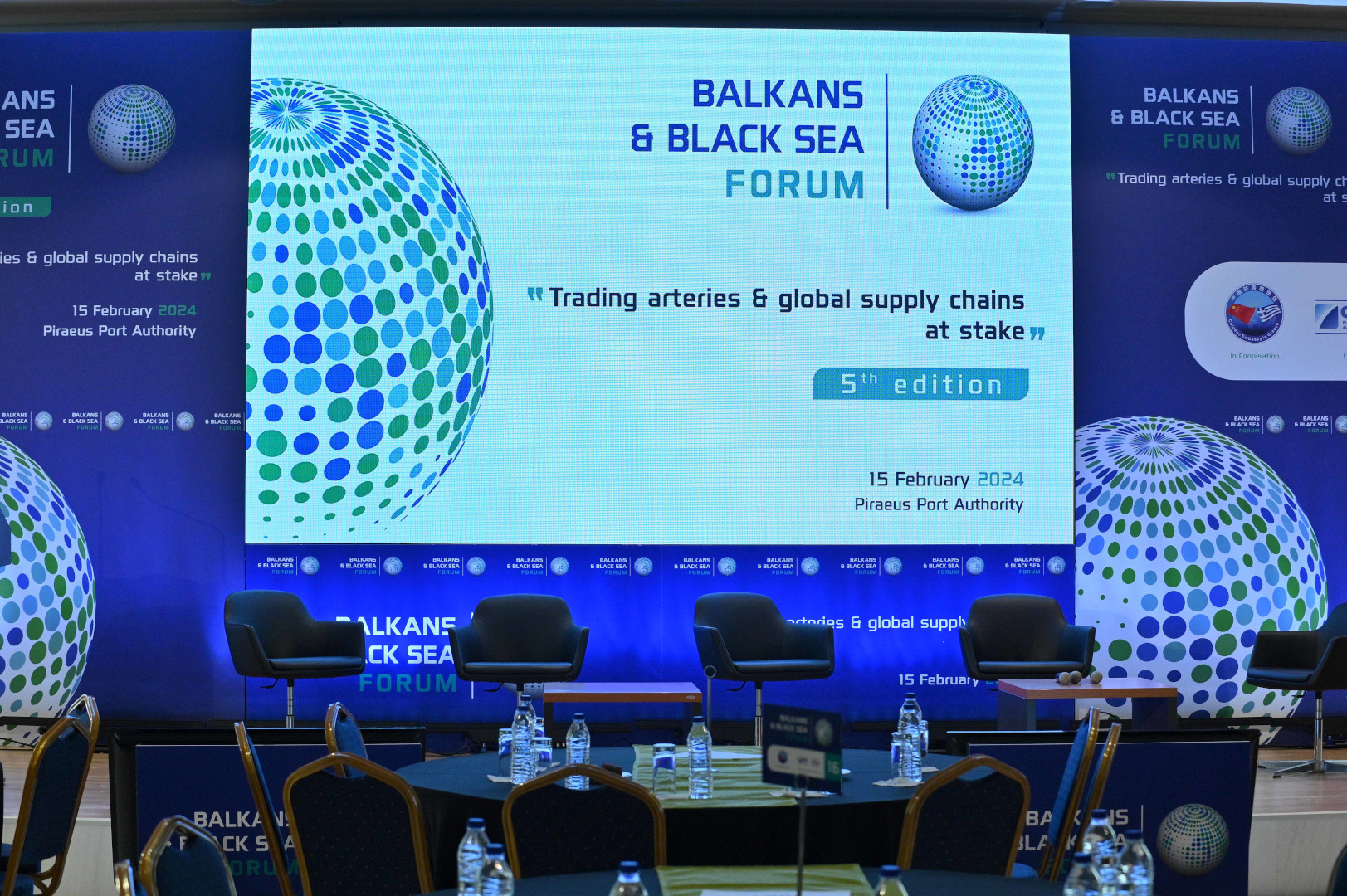
5th Balkans & Black Sea Forum: Trading Arteries & Global Supply Chains at Stake
The 5 th Balkans & Black Sea Forum (BBSF) entitled “Trading Arteries & Global Supply Chains at Stake”, was successfully held on Thursday, February 15, 2024, at the headquarters of the Piraeus Port Authority. The BBSF2024 was organized in cooperation with the Embassy of the People’s Republic of China and the Piraeus Port Authority; it brought together 170 high-level executives & representatives from international organizations, government, diplomatic missions, businesses, media, and it included two keynote sessions on “Geopolitics, Regional Cooperation and Ports Hubs in the Mediterranean” the first, and “New order & trends in regional connectivity” the second.
The Forum took place amidst the grave disruptions in global transports, shipping routes and supply chains due to the spiraling conflict in the Middle East region and the ongoing war against Ukraine, the combination of which raise profound concerns over the sustainability of global trade and supply routes. Thus, the Balkans & Black Sea Forum 2024, provided the opportunity to experts and stakeholders to look into means and ways to address the complex crisis affecting not only key trade routes but also the overall economies of many countries in the wider region.
The 5th Balkans & Black Sea Forum key-take aways:
1) The current challenges underscore the vulnerability of international trade and economic cooperation to geopolitical tensions. Armed conflicts increase the already prevailing feeling of insecurity and uncertainty, demanding collective efforts for sustainable solutions, especially in support of regions and countries more vulnerable to such shocks (BBSF).
2) Understanding and dialogue are the only way for achieving stability and development, ensuring the seamless activity of ports and protecting vital trade & supply routes between East and West, North and South (BBSF).
3) The fact that numerous vessels, especially container ships, avoid sailing in the Red Sea and through the Suez Canal has already drastically diminished the activity in many East Med ports, Piraeus included, where the relative numbers are almost 30-40% down (PPA).
4) Although the real impact of the above negative developments is not yet fully felt, it is certain that in the short term its dire consequences will burden the overall economies of countries in the region. (PPA).
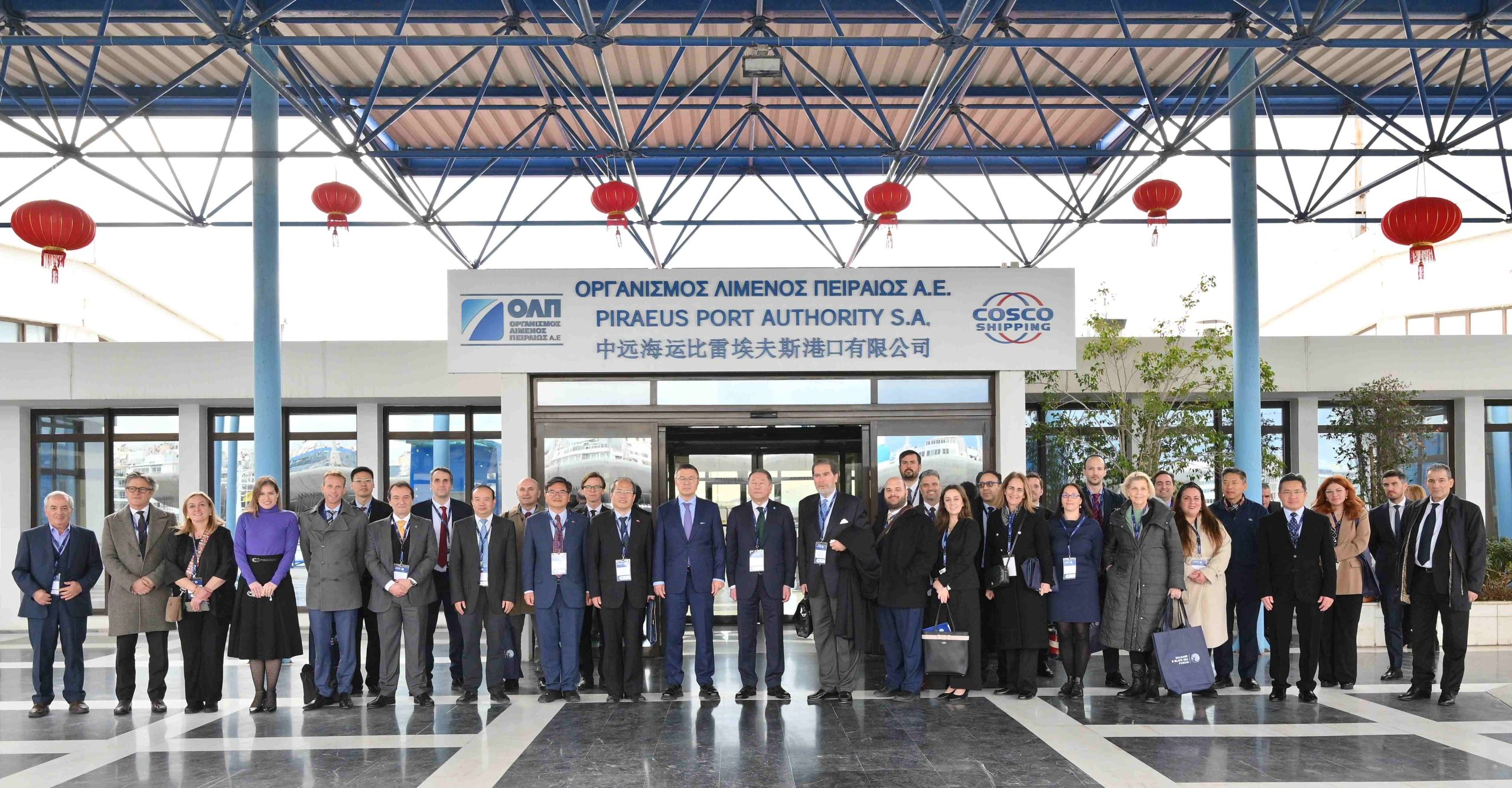
5) In light of the above it is imperative to find sustainable alternative trade routes and transport means, until the international community can agree upon solutions to today’s geopolitical tensions that seriously disrupt economic and social development of entire regions (BBSF)
6) In that sense, international railway connectivity and transport capacity between Europe and Asia assume an increased role and importance, especially the Middle Corridor (from Southern Europe to central China via the Trans-Caspian routes) and the Southern Corridor (from Southern Europe to China, connecting Türkiye, Iran, Turkmenistan, Uzbekistan, Kazakhstan). The development of the above corridors requires the joint effort from all stakeholders to cooperate & coordinate, to harmonise & digitise, to develop operations and to increase investment & public support (UIC).
7) In what concerns especially the East – West trade, more trade-facilitating measures and infrastructure investments in all corridors of the Belt & Road Initiative (B&RI) are needed to address the increasing volume of products and goods to be transported in both directions (BBSF).
8) For example, according to the ITF-OECD, the Middle Corridor requires targeted measures to: a) improve the China-Kazakhstan rail link (Beijing-Aktau), b) optimize border crossings in the Caspian Sea and for China-Kazakhstan, c) develop ports and increase the number of vessels in the Caspian Sea, d) enhance the capacity of ports and rail connections in the Black Sea, e) improve the Türkiye rail link (Kars-Istanbul), f) modernize border crossings and interoperability for Türkiye-Bulgaria and Türkiye-Georgia (ITF).
9) The war against Ukraine drastically complicated the operating environment of the Eurasian railway route passing through Belarus, Russia and Kazakhstan, and elevated the importance of the so-called Middle Corridor. Kazakhstan is committed to reduce by 2024 the traffic time on the Middle Corridor – Eurasian rail route bypassing Russia, from 38–53 days to 14–18 days (Foreign Policy Research Institute, MFA Kazakhstan)
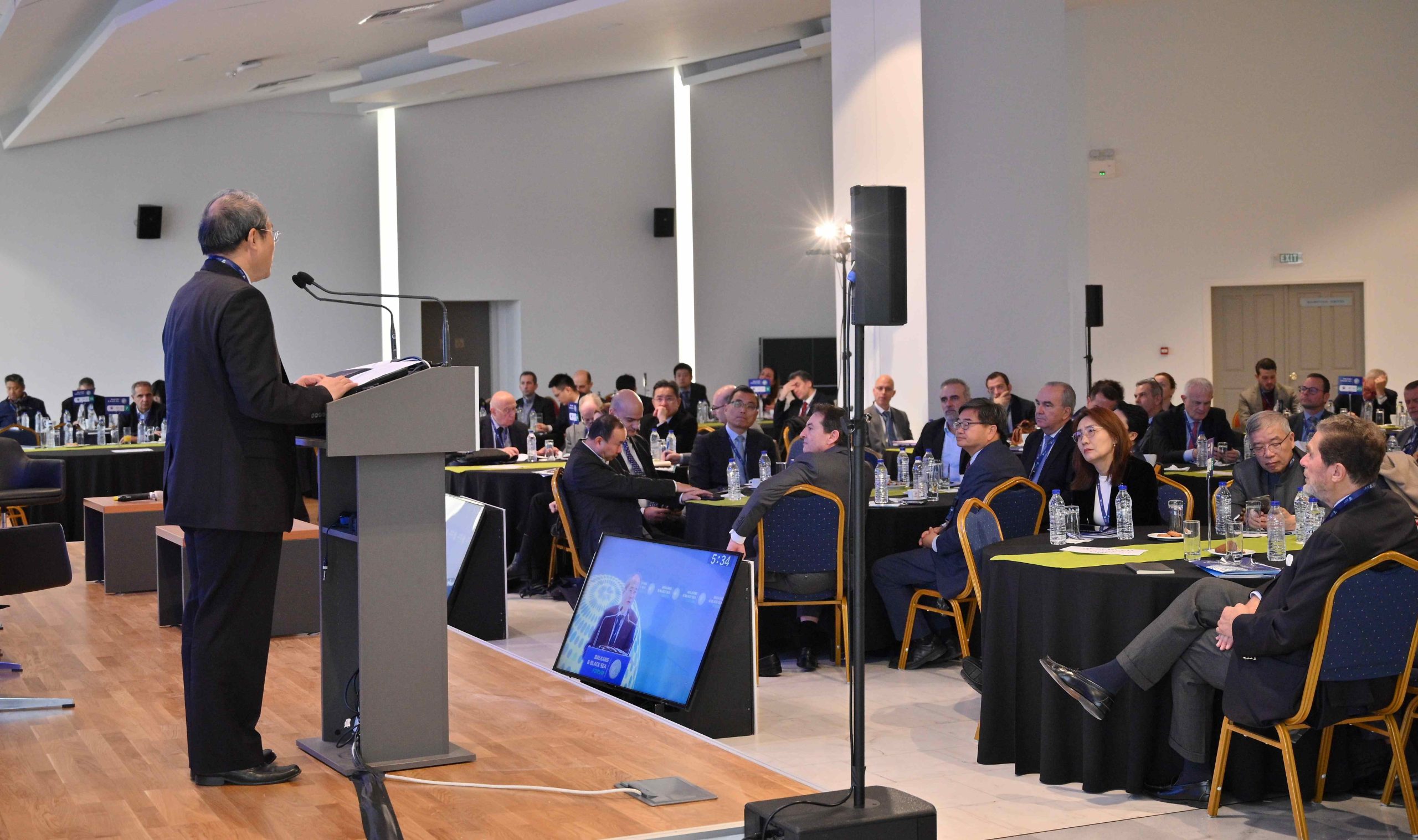
10) Infrastructure investments in Central Asia can drastically reduce connectivity gaps. To maintain network performance by 2050, the road capacity required should be increased between 284% to 1365%, while rail capacity should be augmented between 10% to 459% (ITF).
11) Businesses reported a “drastic increase in border crossing times since early 2022” at the Middle Corridor, due to unharmonized regulation and lengthy procedures that hamper the route’s competitiveness. Also, important congestion is noted at Caspian Sea ports (despite their low utilisation rates) due to insufficient investments, lack of multimodality and inadequate fleets (OECD).
12) During the last decade and in parallel with the China – Europe cooperation, the trade relations and economic cooperation between CEEC countries and China have also developed considerably (Secretariat of China-CEEC Cooperation of MFA of China).
13) Over the last 11 years since launching the cooperation agreement between China and Central & Eastern European Countries (China-CEEC Cooperation), trade volume between the two sides has increased by 140%, while only in 2021, the volume between China and CEECs registered US$133.55 billion (a year-on-year increase of 29.1%, higher than the growth rate of China-EU trade). During that period China has granted market access to nearly 200 agriculture / food products from CEE countries, and the number of Chinese tourists visiting CEE countries has quadrupled from that in 2013 to more than 2.16 million in 2019 (Secretariat of China-CEEC Cooperation of MFA of China).
14) In recent years the world is faced with an increasing peace deficit, development deficit, trust deficit, and global governance deficit. The B&RI in the past decade has supported the principle of extensive consultation, joint contribution, and shared benefits, and promoted international cooperation, connectivity, and common development. It can help to provide new ideas, methodology, and policy options for the world to better deal with today’s global challenges (China Foreign Affairs University).
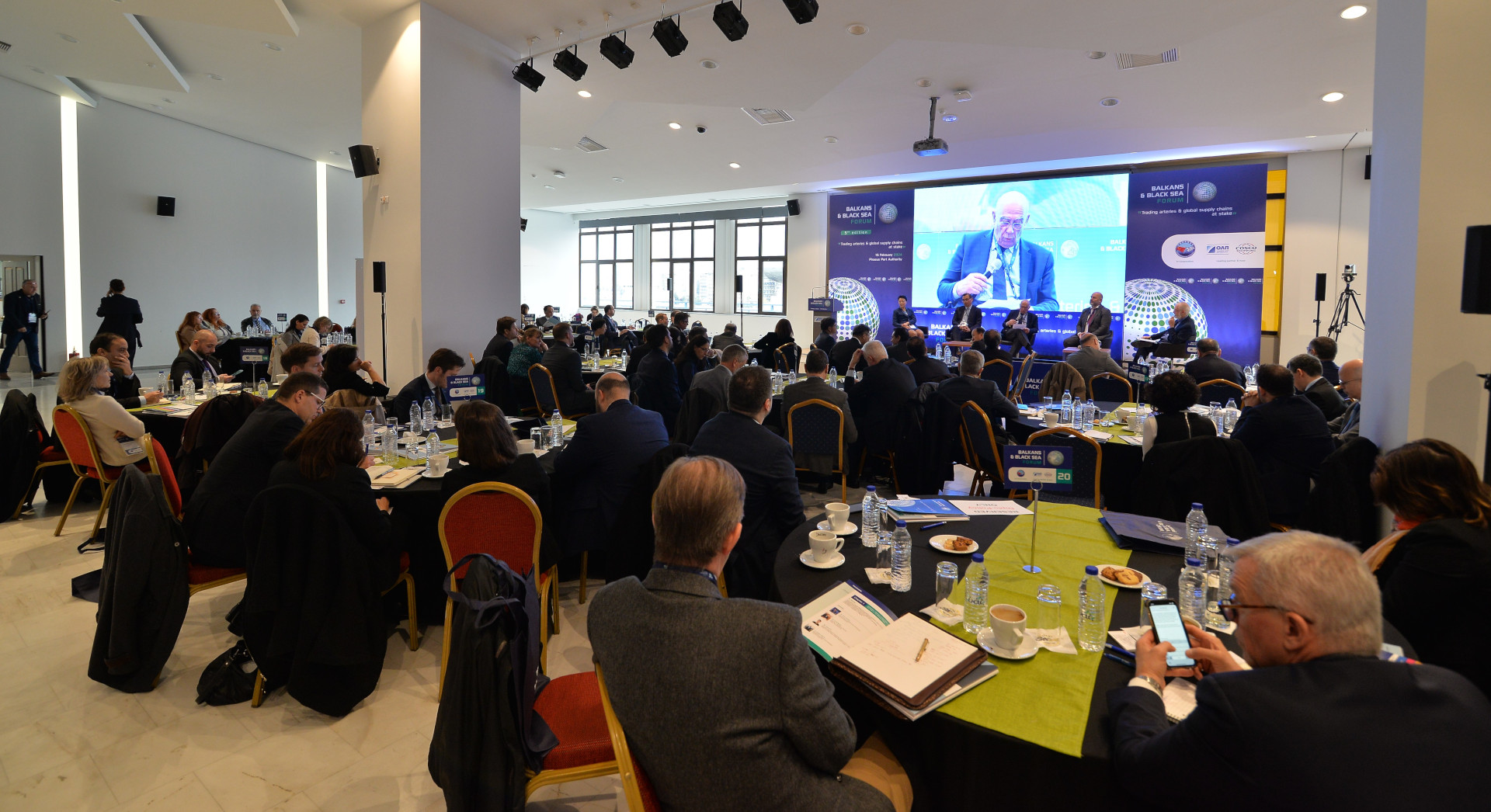
15) China recently inaugurated its first pilot free trade zone (FTZ) in Xinjiang designed to advance industrial upgrading and boost digital trade. The FTZ aims to accelerate trade and economic links (including culture, education, and hi-tech) between Xinjiang and Central Asia (Mongolia, Russia, Kazakhstan, Kyrgyzstan, Tajikistan, Afghanistan, Pakistan and India) (Fudan Institute).
16) The National Administration of Traditional Chinese Medicine (TCM) announced plans to build 30 overseas TCM centers and 50 international cooperation bases and service export bases in countries along the B&RI routes until 2025. In 12/2022, the 1st regional China – ASEAN Forum on Traditional Medicine was launched, while in the Q4/2023, the 4th Belt & Road Traditional Medicine Alliance was held (35 countries) (Fudan Institute).
17) In view of the recently inaugurated expansion of the Piraeus Port’s automobile distribution facilities, it is worth mentioning that Thailand (ASEAN’s leading automotive producer) ranks in the top 10 global EV producers and is Southeast Asia’s first country offering special incentives on EV investments. Four Chinese carmakers have already invested in EV manufacturing in Thailand, namely BYD Auto ($485 million), Great Wall Motor ($634 million), SAIC Motor and Neta Auto (Fudan Institute).
18) Closer to Southeast Europe, it was noted that monitoring and evaluation of transport development strategies, as well as asset management systems, remain inadequate in all 6 Western Balkans countries, although they have adopted or are working on updating strategic plans for further developing their transport sectors. Also, regional connectivity reforms at simplifying border crossing procedures are advancing slowly in the W. Balkans region (OECD).
Finally, the Alternate Minister of National Economy and Finance, Mr. Nikos Papathanasis, underlined that Greece, amidst the international and regional turmoil, remains a pilar of stability in the wider region of the Eastern Mediterranean. The Hellenic Government, he underlined, has established an investment-friendly environment. Greece has the opportunity to become a regional logistics hub, a bridge between Balkans and the Black Sea. And, in this context, Piraeus’ port, as the first best port in the Mediterranean Sea, can play a catalytic role. I believe that investors can use Greece’s advantages to increase their turnover, concluded Minister Papathanasis.
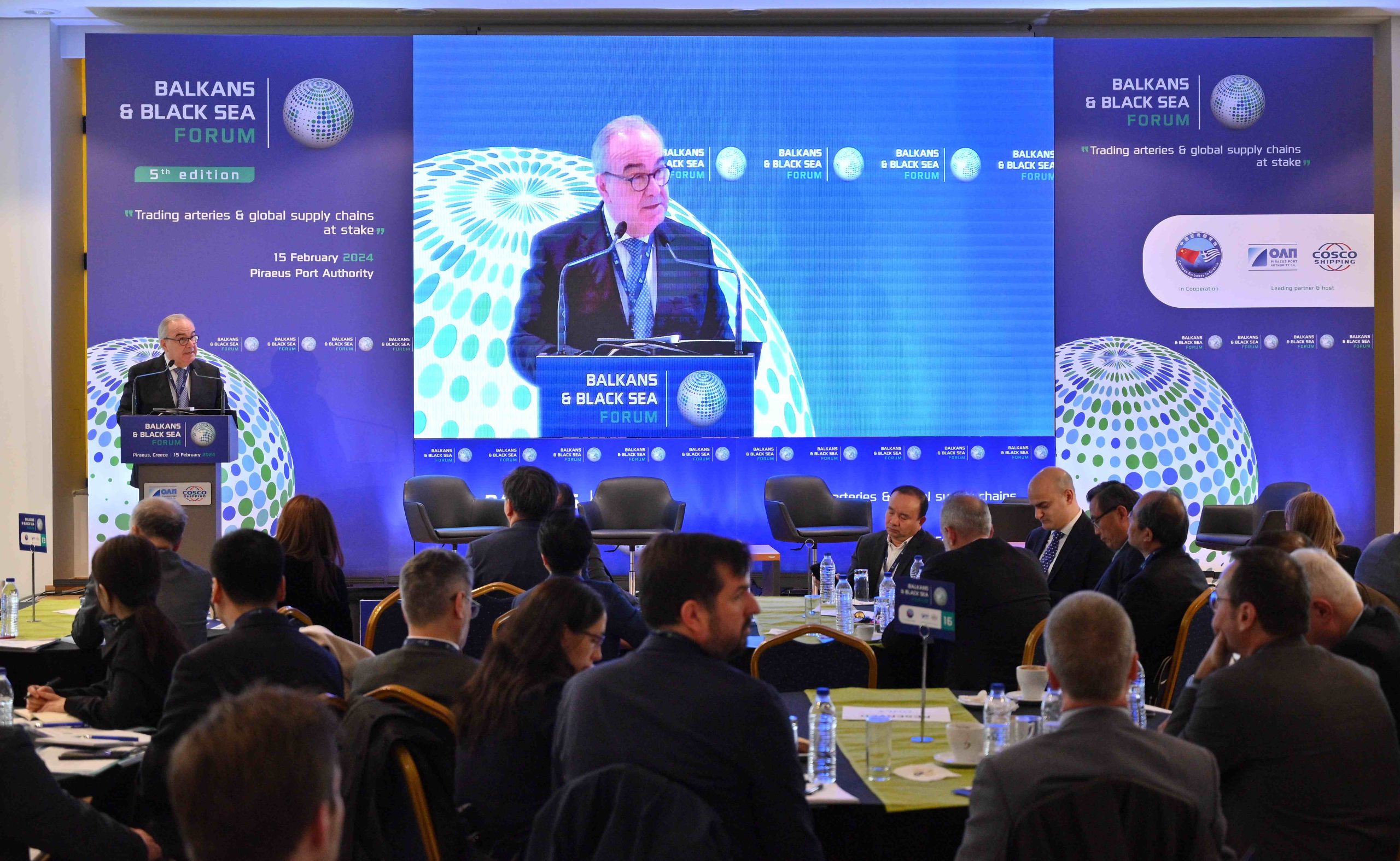
Moderators’ view
- a) Anthony D. Papayannides, Journalist: In the 5th Balkans and Black Sea Forum (Febr. 15th), hosted at the Piraeus Port Authority, connectivity and regional cooperation as expressed by the Conference theme “Trading Arteries & global supply chains at stake” had to face the rigors of geopolitics. The Gaza Strip-Israel conflagration three months on and the Houthi attacks increasingly inhibiting sea-going traffic from the Far East/South East Asia through the Red Sea towards the Mediterranean and Europe have caused severe traffic disruptions. Meanwhile the open war situation in the Ukraine is nearing the end of its 2nd year putting stain on the Black Sea. Still, the weight of geopolitics has not proved enough to fully restrain the imperatives of connectivity and of regional/international cooperation attempting to keep trade flows and logistics operations going. One first take-away of the Conference was that container traffic through Piraeus could somehow hold for some more months of disturbance, but certainly not for too long. The wider regional pursuits of the BRI/Silk Road policy of China serves as a safety net to stabilize the situation and keep trading arteries open. Overall EU policies are keeping global supply chains in their priorities so their interest in enhanced regional cooperation and connectivity remains unchanged. The cruise market, that has been maturing notwithstanding the shock of the Covid years, would try to keep steady: making of Piraeus a home port for cruises was a win. The perspectives of the Middle Corridor which runs through Central Asia were touched upon. The hope was expressed once the Ukraine war was over, the Black Sea region would regain its growth potential in matters of trade.
- b) Ambassador (a.h.) Michael B. Christides, Co-Chair Balkans & Black Sea Forum: The 5th edition of the BBSF2024 was a very timely and pertinent event, considering the mounting difficulties in global shipping and supply routes, especially due to the continuing war against Ukraine and the recent flare-up in the Middle East. Executives, experts and stakeholders from the wider region had the opportunity to elaborate on the hurdles that Mediterranean ports and shipping companies face because of the geopolitical tensions and armed conflicts raging in the region and touched upon ideas and ways that could mitigate the accumulated problems and provide sustainable alternatives. It was underlined in no unclear terms that the closure to international shipping of the Red Sea and the Suez Canal, through which more than 15% of global trade is carried out, has already led to a drastic decrease in maritime- and port-activity in the Eastern Mediterranean (Hellenic ports included) and this will certainly result to further economic problems, inflation, increased prices, etc. the full extent of which will be felt very soon. Speakers agreed that the UN and international organizations should insist on promoting sincere dialogue and closer cooperation among states if we are willing to build a global community with less armed conflicts and egocentric geopolitical ambitions. It was a pleasure and honor to moderate a panel with 7 distinguished speakers who contributed decisively to the vibrant elaborations and discussion that attracted the attention of the numerous audiences.
Speakers that honored the BBSF2024: in representation of the Prime Minister Mr. K. Mitsotakis the Alternate Minister of Economy & Finance Mr. Nikos Papathanasis, the Ambassador of China Mr. XIAO Junzheng, the Executive Chairman of the Piraeus Port Authority Mr. YU Zenggang, the General Secretary of the International Transport Forum (ITF/OECD) and the Director General of the International Union of Railways (UIC), Mr. Young Tae Kim and Mr. François Davenne, respectively, the Counsellor of the Secretariat of China-CEEC Cooperation of MFA of China Ms. XIA Xiaoxi, the President of the Foreign Policy Research Institute from the MFA of Kazakhstan Ambassador Nurgaliyev, the Director General of the Fudan Institute for Belt & Road and Global Governance Dr. HUANG Renwei, the Vice President of the China Foreign Affairs University Ms. SUN Jisheng, the Head of Investment Strategy of Piraeus Bank Mr. Lekkos, the Dpt. Secretary General of the BSEC-Permis Ambassador a.h. Mr. Rallis, the Project Manager of the OECD SE Europe, Mr. Bosshammer, the CEO of the Port of Kavala S.A. Mr. Vlachos, etc.
BBSF2024 video recordings will be available soon at the Balkans & Black Sea Forum YouTube channel.
